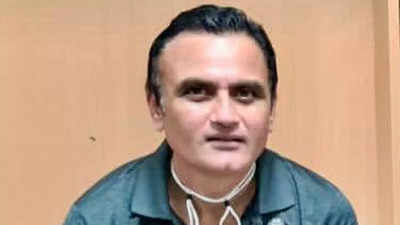Rishi Kapoor, ex-Delhi footballer, passes away (original) (raw)

NEW DELHI: Rishi Kapoor, the first
Delhi footballer
to win a
national football league
title, passed away in a city hospital on Monday. He was 49 and had reportedly been suffering from liver-related issues.
Primarily a left-footed midfielder with fine passing ability and a thunderous shot, Kapoor spearheaded
Hindustan FC
’s rise in Delhi’s football of the late 1990s and early 2000s, his ability and time on the ball was good enough to catch the attention of the big clubs in the then National Football League and later, the
I-League
.
At a time when the Capital’s footballers were mostly semi-professional and rare on the national clubs’ scene, Rishi left to join ITI in Bangalore in 2000 with ambitions to play in the NFL. Already employed with
Delhi Audit
, and with ITI. He was one of the first players to be signed on contract by the Bangalore outfit as it rejigged its rules to allow for two outstation players, or ‘guest players’ as they were officially labelled.
It was here that a tweak was made to his positional nature that would immediately further his prospects as a footballer. Partly due to a crowded midfield at ITI, and largely due to his left-footed passing and fondness for playing from the deep, Rishi was converted into a defender at left-back. It may have stifled a bit of his creativity, but his game-reading lent solidity to the defence. His performances at ITI led to Mohun Bagan taking notice.
“We’ve lost a very good player today. This is no time to go,” Debjit Ghosh, teammate when Bagan won the title in 2002, told TOI from Kolkata. “When we first saw him at ITI, he was playing as left-back and he really impressed our coach, Subrata Bhattacharya. Much later after we signed him, we realized that he was a natural playmaker, but we needed him in defence. He and I struck up a very fine understanding on the field,” said the ex-India player.
Former India international Renedy Singh too recalled their days together at Bagan. “Back then, it was normal that the clubs would never pay us on time. We would seldom have money, but we loved the local kebabs. I remember Rishi, Lolendra (Singh) and me literally scrounging money from here and there just to go Eliot Road and have kebabs,” said Renedy, “He was a very forthright person, probably that may have rubbed some people the wrong way but I remember him very, very fondly.”
Despite a national title and the promise of further professional exposure, Rishi left Bagan to return to Delhi’s Hindustan. “He stayed just a few seasons with us. He wanted to return to keep his job,” remembered Ghosh. It was perhaps this mindset – of saving the job -- that probably cost the Delhi footballer an India call-up. Stephen Constantine, the then India coach, was impressed by Kapoor’s versatility on the left channel, but chose to ignore him because he rightly felt that Delhi’s football didn’t offer a high level of intensity and competitiveness.
With his job safe, Kapoor enjoyed brief stints with Salgaocar and Sesa in Goa but always returned to establish himself as an Ambedkar Stadium fixture. A decade later, after his first move, as Delhi football would change character, moving away from the Walled City into the suburbs, Rishi Kapoor would be the symbol of change. Playing for newly-formed Delhi United, he would toy with much-younger footballers, effortlessly doing it even at 35.